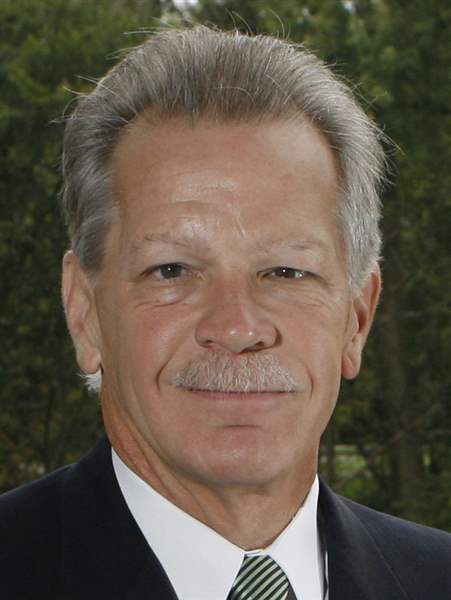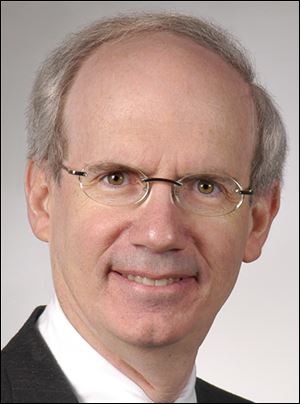
UT-ProMedica alliance gaining steam
Initial troubled relations begin to yield benefits in funding, residencies
7/22/2011
Randy Oostra
The Blade
Buy This Image

Jeffrey Gold
Having more residents gaining experience in ProMedica's hospitals and serving patients was the obvious goal of a health-education alliance forged last year with the University of Toledo.
But after more than a decade of troubled relations, other benefits -- including more clinical trials for patients and funding for collaborative research projects -- have become clearer since the Academic Health Center concept made its debut and continued its development, UT and ProMedica leaders said Thursday.
"I think, at least from a ProMedica perspective, it's exceeded anything we would have been expecting," Randy Oostra, ProMedica's president and chief executive, said.
Said UT's Dr. Jeffrey Gold: "This has been an eye-opening experience for both organizations."
Under the partnership, UT is managing resident programs at all ProMedica facilities, including Toledo Hospital. A board with members from UT and ProMedica oversees the alliance, which strives to recruit and retain doctors for northwest Ohio and southeast Michigan.
By 2016 ProMedica will have 63 residents from UT working at its hospitals as 29 residency rotations are added and 26 others expanded. Before the alliance was finalized in May, 2010, 17 residents were at ProMedica, both institutions said.

Randy Oostra
Chances for UT students in nursing, pharmacy, physical therapy, and other health fields also have been expanded. Plus, discussions among board members have helped UT to better prepare students in areas such as critical-care nursing, said Dr. Gold, UT chancellor, executive vice president for biosciences and health affairs, and medical college dean.
Participating in more clinical trials is another benefit of the partnership, Dr. Gold said, and 60 new agreements involving hundreds of patients have been signed since July, 2010.
Together, UT and ProMedica have a better chance of getting more clinical trials because of factors such as pooled patient access, he said.
Six projects involving collaboration among UT and ProMedica researchers, meanwhile, have been awarded two-year grants worth $50,000 each to work on advancing and getting outside funding for their proposals, Dr. Gold said.
He is slated to give a presentation about the partnership's progress to the Association of Academic Health Centers in September.
As an example of another benefit, ProMedica and UT are designing a biospecimen tissue banking program to further research in patient care. Such a bank is used to store tissue from procedures and surgeries that, with patient consent, can be used in research trials.
"This is the sort of thing you look at and say, 'Boy, I wish we had done that years ago,' " Mr. Oostra said.
For years, though, relations between the two institutions were rocky.
ProMedica temporarily severed ties in 1999 with the former Medical College of Ohio when the medical school considered joining with Mercy to establish Mercy Children's Hospital. Four years ago, business-related issues -- including financial incentives encouraging UT Health Science Campus employees to seek treatment at UT Medical Center -- nearly halted medical student rotations at Toledo Hospital.
The growing relationship with ProMedica has not affected UT's medical education ties with other hospitals and offices, including Mercy, which has had its own resident program since 1893.
Contact Julie M. McKinnon at: jmckinnon@theblade.com or 419-724-6087.